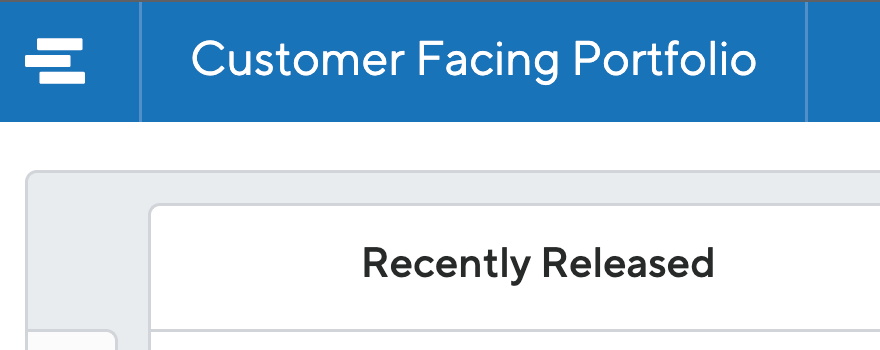According to LinkedIn, interest in product management has doubled in the United States in the past 5 years. ProductPlan’s State of Product Management Report revealed that 72% of product managers are mostly happy or extremely happy in their current role. It’s a dynamic role with a lot of room to grow, so it is no surprise that we see an influx of product managers looking for advice to stand out. If you take away only one idea from this post about improving your product manager resume, I hope you’ll remember this: Highlight the impact of your work, not just the work itself.
In my years as a product leader, I’ve reviewed a lot of product managers’ resumes. If I had to point to the most common shortcoming in these documents, it’s that their authors told me only what they did. They didn’t tell me why (or if) it mattered.
Why is that so important? I’ll explain below. Then I’ll offer a couple more ideas to give your resume a better chance of standing out from the pile on product leaders’ desks.
3 Tips to Make Your Product Manager Resume Stand Out
1. Show us why your work mattered.
Why this works: It shows not only that you’ve done things (which doesn’t mean much) but that you’ve made a difference (which means everything).
Product management isn’t about crossing items off of to-do lists. Nor is it about filling your day with tasks, meetings, and commitments. You’ll succeed as a product manager only to the extent that your work makes a positive impact on your company and your customers’ lives.
Let’s say I’m reviewing a product manager’s resume, and I see bullet after bullet like the following.
- Established KPIs for the product team
- Coordinated with several departments across the organization
- Responsible for maintaining the strategic product roadmap
- Held regular meetings to update executives and other stakeholders
- Conducted customer surveys to gather product feedback
I have no way of knowing whether or not this candidate is an effective product manager. I have no reason to feel confident that this person even knows what product management success looks like. It’s definitely not showing up in those bullets.
A related point: When I suggest that you highlight your work’s impact, I don’t mean only in terms of revenue or other inward-looking metrics. Product leaders—or at least this product leader—will want to see evidence that you empathize with your customers. That’s the key to success in product management. It’s also lacking in nearly all of the resumes I’ve ever read from product managers.
Here’s how I’ll be evaluating those bullets in product managers’ resumes and why.
Not good:
“I created product ABC.”
This tells me nothing about the impact product ABC had—or didn’t have—on anyone.
Better:
“I created product ABC, which earned $X in revenue.”
With this statement, I at least get a sense that the product resonated with some users. But I’d be disappointed if the product manager didn’t also think to describe—even briefly—how the product positively affected those users.
Best:
“I created product ABC, which helped improve the daily workflows—and therefore, in a small way, the lives—of more than 10,000 users.”
Now we’re talking!
That statement accomplishes so much. It highlights the product’s impact. It demonstrates the product manager’s empathy with their user persona. And it shows humility by acknowledging the product helped to improve lives “in a small way.”
A resume built around these principles is going to get attention.
2. Show us how you bounced back from a mistake.
Why this works: It demonstrates you’re able to learn, adapt, and solve problems.
While interviewing product managers over the years, I remember several times uncovering a candidate’s most impressive attributes only after some prodding. Sometimes it happened entirely by accident. The details didn’t appear on their resumes. In fact, the candidates often seemed reluctant to share them with me at all. I think I know why.
One of the most valuable skills in product management is the ability to course-correct after the original course proves unsuccessful. But to show a hiring manager that you’ve proven capable of finding a new solution after a failure, you have to acknowledge that past failure.
How many times have you included on your resume a story about a disappointment or mistake in a previous job—and how you adapted to overcome it? I’m guessing none, and I don’t blame you. We’ve all been conditioned to believe our resumes should show only success after success.
Back to those interviews I mentioned above, where I had to pull this information out of a reluctant candidate. Let me describe how it would happen because it usually happened the same way. I’d have the candidate’s resume in front of me, and I’d ask them to elaborate on something they’d written, such as: Implemented several best practices at the company.
“Give me an example,” I’d say.
I could tell they wished I hadn’t asked.
“Oh, well, I introduced a few new processes to the product team when I started with the company. But honestly, they didn’t work out well. So, I tried a different approach. And those processes were really successful. In fact, we ended up sharing them with other departments in the company. They became best practices.”
Talk about burying the lead!
This is the type of story product leaders want to hear from product management candidates. We know you’re not perfect. Nobody is. But we want to know how you’ll react when you make a mistake or suffer a setback.
Besides, the information in that story illustrates so much more than a “mistake,” if that’s even the right term. It shows growth, a problem-solving mentality, the ability to admit a mistake, and the ability to change direction when necessary.
Also, product managers should be effective storytellers. Everyone loves a great comeback story. Including a “How I bounced back after a setback” anecdote will definitely give your resume a competitive edge over the rest.
Watch our webinar, Hiring and Growing a Successful Product Team, to see what product leaders look for when hiring new team members:
3. Show us who you inspired… not what you ran.
Why this works: Product leaders want to see your ability to persuade, build chemistry, and help a team succeed.
Product managers don’t actually “run” anything. All of the teams you’ll work with as a product manager—in development, design, marketing, etc.—report to other people, not you. As we’ve written here at the ProductPlan blog, two of the biggest lies product managers tell themselves are: “I am the CEO of my product” and “All product decisions need to go through me.”
Running a team isn’t your job as a product manager. Your job is to persuade, inspire, and lead a team by earning its trust.
Product leaders know all of this, of course. So, when you describe your previous product management role as “running” a cross-functional team or major product initiative, you’re not revealing anything unique or interesting to the hiring manager reading your resume.
The real question is: Can you bring together several groups of specialists from across your company, make them feel like a team, get them working toward a shared goal, and give them the support they need to do their best work?
That’s what a product leader wants to learn about you while perusing your resume. We want to know about your ability to:
- Build team chemistry
- Inspire your colleagues
- Collaborate and get along with all sorts of personality types
- Keep a large group of professionals, many in different departments and even different geographic locations, all pulling in the same strategic direction.
If you can demonstrate those abilities in your Product Manager resume—heck, if your resume even demonstrates that you know the value of those abilities—you’re going to stand out among product management candidates.
And if your resume reflects the principles I’ve outlined above, please send it my way.
Read more of my conversation on this topic here:

![[Free report] 2021 State of Product Management ➜](https://no-cache.hubspot.com/cta/default/3434168/1a581ef6-fb4d-4638-afef-da3652feefb6.png)




